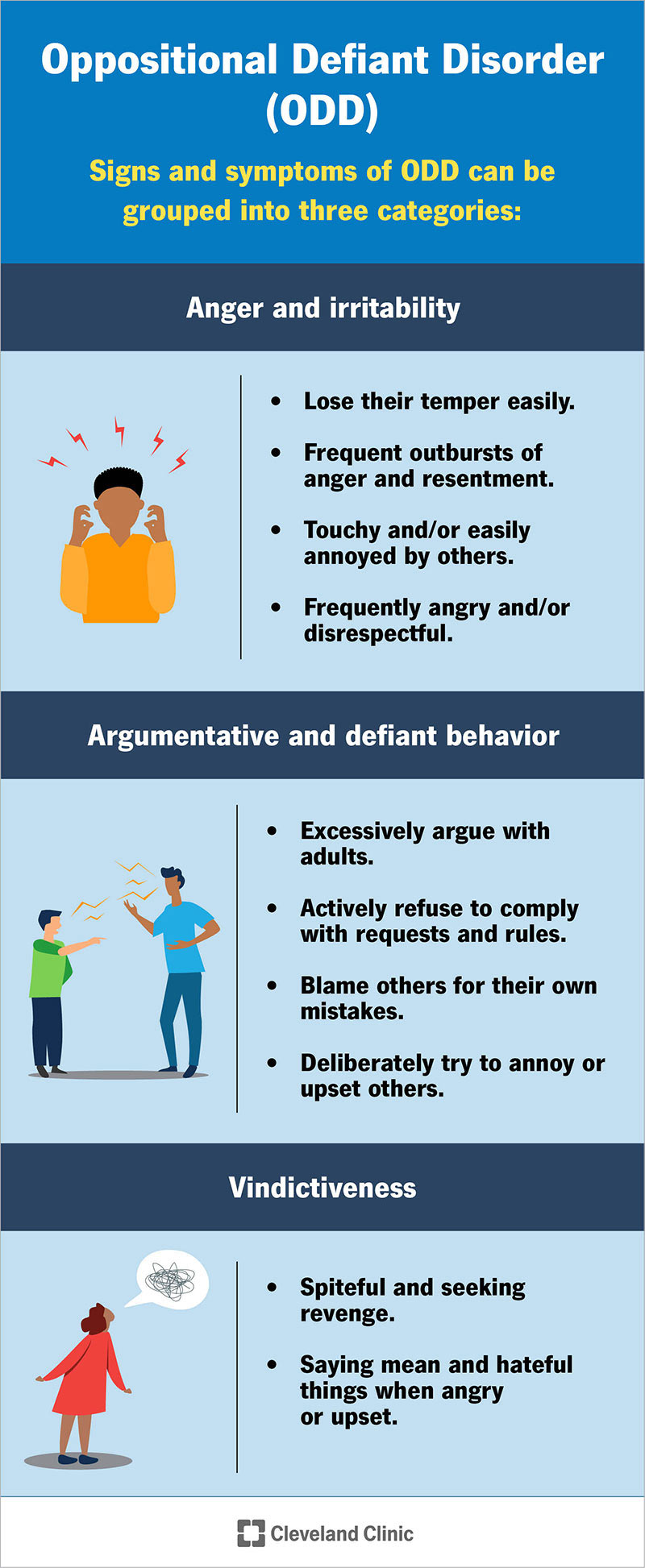Updated on October 11, 2024
Teen Oppositional Defiance Disorder (ODD): A Comprehensive Guide for Concerned Parents
When your teenager is stuck in defiance and disrespect, is it just a phase, or is there something deeper going on?
For many parents, this is a difficult question to answer, but it’s vital if you are going to be effective in disciplining and loving your teenager.
If you have a teen who seems to be struggling with an overwhelming amount of defiance, you may be facing teen ODD. Teen ODD is more than just normal, natural questioning or rebellion that teens often face.
Closely linked to anxiety, ODD is a specific mental health disorder that can feel quite overwhelming to parents. Yet, with the right help, you and your teen can get through this disorder and come out ahead.
The key is to identify the problem and put the right supports and therapies in place for both of you.
Understanding Teen ODD: What Is Oppositional Defiant Disorder and Why It Matters?
ODD is a behavioral disorder that teens can develop that causes them to be disrespectful and defiant more than is considered normal for their age. Sometimes, they will even become vindictive, especially toward authority figures and parents.
Understandably, this is a discouraging and frustrating disorder for parents to live with, but it brings a distinct challenge in that some parents struggle to pinpoint the disorder versus behavior a child can control.
If you suspect you are parenting a teen with ODD, you need to know that normal teen discipline strategies are not going to work. When a teen has ODD, traditional discipline will make the symptoms worse.
This disorder is more than just having a difficult teenager. It’s a mental health disorder that requires targeted therapy and treatment and a new approach to parenting.
Signs of Teen ODD: Recognizing the Patterns
Oppositional Defiant Disorder is listed in the Diagnostic and Statistical Manual of Mental Disorders, making it an official, recognized diagnosis. According to Mayo Clinic, to meet the criteria for ODD in the DSM-5, a teen must:
- Exhibit an angry and irritable mood
- Have argumentative or defiant behavior
- Have hurtful or revengeful behavior
These are very broad categories. These behaviors may exhibit themselves in several ways, such as:
- Throwing tantrums
- Intentional and excessive arguing with authority figures
- Frequent anger outbursts
- Resentment, especially towards adults
- Regular annoyance at others
- Purposefully upsetting or bothering others
- Spiteful behavior
- When upset emotionally, using that to deliver mean, hateful words
- Excessive mood swings
Sometimes, identifying these patterns is hard for parents. After all, all teens have periods of moodiness, and many will have defiance from time to time. In some ways, a little defiance is part of growing up and discovering who one is as a young adult.
These behaviors are considered a disorder when it is a pattern of behavior occurring at least once a week that lasts at least six months. In addition, the teen needs to have at least four behaviors that fall into the three larger categories.
The behavior also must occur with at least one individual who is not a sibling, and it must create problems at school, work, or home.

Click to view the Infographic
The Link Between ODD and Other Disorders
Parents of a teen with ODD may notice other emotional and behavioral concerns. For example, it’s common for this disorder to appear alongside mood and anxiety disorders.
In fact, around 40% of teens diagnosed with ODD are also diagnosed with an anxiety disorder.
Researchers believe that anxiety disorders may make ODD symptoms worse and, therefore, more obvious, or they may actually be an underlying cause of the ODD.
In addition, some teens with ODD may also have learning disabilities. This mixture of emotional and behavioral problems can contribute to their feelings of disrespect and defiance.
For that reason, treating both the ODD and the other disorders connected to it is important.
Managing Teen ODD at Home: Effective Parenting Strategies for ODD
If you suspect your child has ODD, or if you have a diagnosis, you will likely face some significant challenges.
The challenges that teen anger, anxiety, and other behavioral disorders bring are hard enough, but when you add significant teen defiance to the mix, you need some strategies to help.
First and foremost, if you are parenting a teen with ODD, get professional help. Both you and your teen need counseling, and siblings may also need some.
Get the child a comprehensive evaluation to determine what disorders are present and what therapies would help most.
In addition to professional help, you can do much to help your teen at home as well. First, focus on the positives. When your teen does something good, like cooperating or showing some flexibility, praise them. What you focus on often replicates itself, so focus on behaviors you like.
Model good behavior yourself. If a conflict between you and your teen is starting, for instance, model stepping away to collect yourself. Allow your child to step away, too, before conflicts escalate.
Pick Your Battles
When parenting a child with ODD, you do have to pick your battles. This disorder makes the teen seek power struggles, and when they enter one, they will dig in their heels to come out on top.
You can help by only picking battles that are absolutely vital to the health and safety of your child and the family.
This doesn’t mean you should be fully permissive. Your child needs boundaries, limits, and consequences. Just make them reasonable and age-appropriate, and try to stay consistent.
One of the biggest things you can do to help this disorder is to have a relationship with your child with interests outside of ODD. The behavioral disorder will take a lot of your attention, but you can work to create common interests outside of it.
Having a strong relationship with your child can help you weather the challenges that come with this disorder.
Finally, make sure you manage your own stress. Find self-care routes and your own therapy that will help you stay centered and balanced so you can give your child the attention they need as they navigate this disorder.
Consider adding exercise and periods of relaxation to your week to help. Seek the friendship of other parents with teens who may be struggling, which will help you feel less alone and isolated as you move through this challenging disorder.
Find in-person or online parent support groups to help you through the most difficult times.

Getting Help for Teen ODD: Therapy and Support Options
The good news is many teens with ODD will respond quite well to positive parenting techniques. That doesn’t mean you shouldn’t discipline your child occasionally, but when you can use positive techniques instead of negative ones, you may see a better response from your teen. Then, adding professional therapy and counseling to the mix will help you and your teen learn how to manage ODD and any co-occurring disorders the teen has.
When a teen has co-occurring disorders, such as ODD and anxiety, then it may be time to consider a more comprehensive approach to therapy. In these cases, your difficult teenager may need more help than they can get with regular meetings with a therapist. A residential treatment program can provide that help.
When Home Strategies Aren’t Enough: Exploring Residential Treatment
In residential treatment, your teen is able to be in a safe environment where their ODD behaviors are not putting them or their family at risk. They can get consistent therapy to address their defiance, change their patterns of thinking and acting, and overcome their underlying anxiety.
With this type of focused therapy and oppositional defiance treatment, many teen behavior problems can effectively be eliminated, and the parents are no longer the ones who have to bear the brunt of their teen’s anger and defiance.
With residential therapy, you also get parent support to help you navigate the challenges of this behavior with others who have been there. Teen behavior problems can feel quite isolating, and this support helps you know you are not alone.
Teen ODD Parent Support and Resources
The Link Between the Autism Spectrum and Teen Defiance (ODD
Support for Parents of Children with ODD (Facebook Group)
The Explosive Child by Ross W. Greene, PH.D. (Book)
American Academy of Child & Adolescent Psychiatry
Pros and Cons of Therapeutic Boarding School and Residential Treatment Centers
Disclosure: Some links may earn us a commission, at no cost to you. Recommendations are based on our research.



















